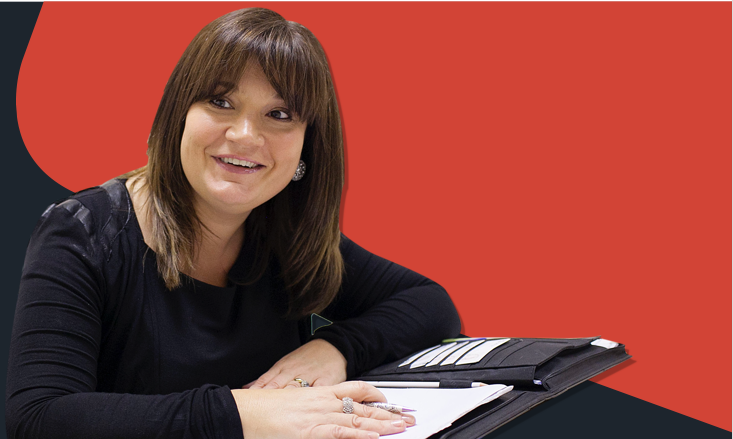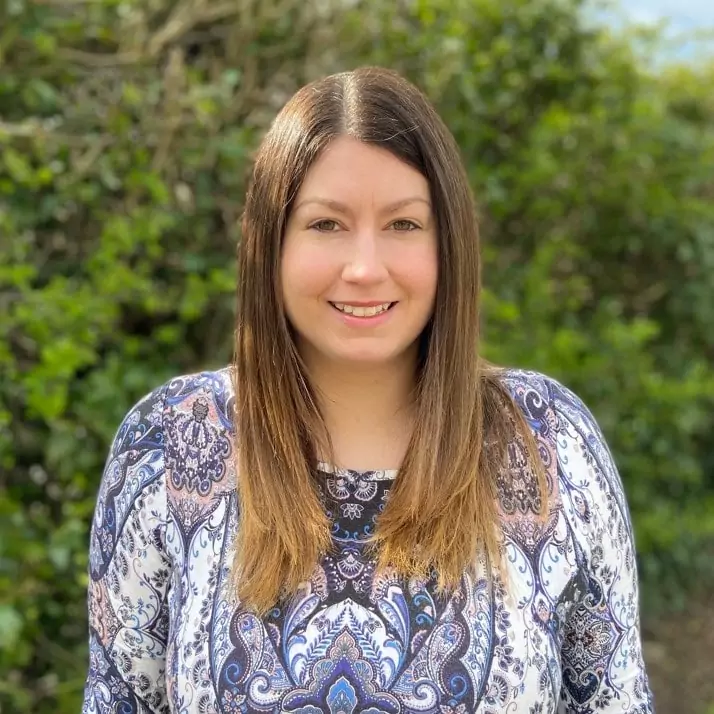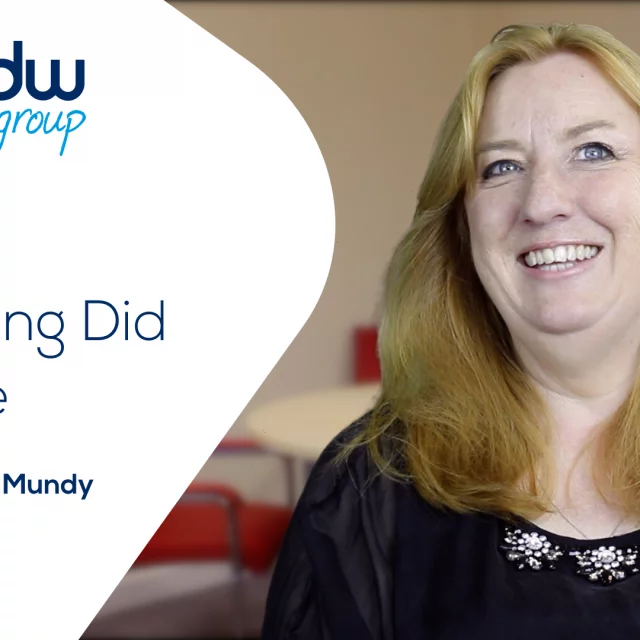Rhys Davis from Armstrong Watson shares his story of how PDW helped him with his professional development goals, and gives some great tips on how you can start your own journey towards self-improvement!
Leadership Behaviour
“What leaders do is important, but what leaders are seen to be doing is even more so.”
Leadership Behaviour
Leadership is in part a functional activity (what leaders do). Good leaders will be well planned, they will set clear direction & goals, and they will seek to provide the resources needed to achieve those goals.
It is also though very much a behavioural activity (what leaders are seen to be doing). Leadership behaviour is often copied and even aspired to by the people around them, and subconsciously by those that follow them. This can be a force for good, however, there is also the risk of organisations condoning and propagating the wrong behaviours. The ones that disengage the workforce.
“It is usually the behaviour that is copied or role modelled by others, less so the function.”
Many leaders get this of course and fully accept this level of responsibility as being part of their role. Some however just don’t realise it. We regularly experience examples of leaders either not understanding the impact of their behaviours on others. They may not even be aware of it or are not being sufficiently ‘mindful’ to be able to change it.
What does this mean for leaders?
Great individual leadership starts with a person’s level of self-awareness. Great leaders are partly those who have a good understanding of self. They know their natural strengths, their pronenesses and their ‘default settings’.
They know how their behaviour typically impacts on others. They know who they may clash with unless they try harder to accommodate styles that don’t naturally sit well with them. They know how they react under pressure, and they know they can’t lead everything, so they know when to ask for help and when to follow another leader.
“Great leadership starts with great self-awareness”
How can this translate to great leadership behaviour?
We believe that to be a great leader in the modern business world you do have to be interested in the people around you, the people you are actually leading.
There is much modern research that says the single biggest differentiator of a great leader is their high emotional intelligence and a focus on people and relationships.
Being aware of self is a key part of this, and it provides an anchor point from which the leader can then connect with others, and flex to maximise each situation. There are a number of critical behaviours and skills that leaders need to do this effectively which we at PDW can teach you.
Some people have some of these as part of their character, such as being curious, being brave or being impactful. Others have to work at these things, and many of them do not necessarily come naturally.
How can PDW Group help your leaders develop the key leadership behaviours?
We transform the behaviour of people in business. We do it every week and transforming leadership awareness and leadership behaviour is no exception.
We work with small groups of leaders on an in-house basis using our powerful and unique workshop solution. Where you have only one or two leaders that need our intervention, this can also be achieved through 1:1 coaching & mentoring relationships.
We work to a proven methodology to help you to get the best out of your training.

More and more organisations will have a well-defined competency framework which will set out clearly what great leadership looks like. This means we can firstly help to assess the leader against these criteria, providing an accurate picture.
Once we are clear on the gaps, we can work on improvements and the transformations can begin.
The actual behavioural changes that occur can be hugely varied, but good examples are:
- Leaders giving clearer, more compelling direction to others such that the task happens to standard and on time
- People around the leader having a much better understanding of the context of their role so they can be more self-sufficient, and make better decisions, being less dependent on the leader
- The leader making time for team members and giving high-quality feedback, both positive to boost confidence, and improvement based to boost competence
- Step changes to the level of influence displayed by the leader with customers, internal colleagues & industry figures based on a vastly improved awareness of self and others
- The leader making time to coach, knowing how and when to coach, and when to direct
- Significant flexing of leadership style and behavioural style that compliments exactly the other person(s) needs in the moment. This ensures maximum engagement and productivity.
Where do you go from here?
If you want to know how our unique solution works, then click on the button below.
And if you would value a no obligation chat, whenever you’re ready we are happy to listen and go from there.
Testimonial
Here’s what Encore Personnel had to say about PDW
“Brilliant trainer, relevant and engaging content, I feel motivated and closer to my team colleagues as a result of the day so mission accomplished!”


I often hear myself say “Great opportunity to use your PDW skills” – or, in shorthand, just “PDW!” This has been the most effective training I have done in my career – and to call it training downplays it.

Particularly good feedback from the team on all the practise sessions as this really brings the theory to life – and a great team helping to do that.

Good structure, very well facilitated and the combination of project and personal skills training meant that it was easy to see how the personal skills could be practically applied.

I often hear myself say “Great opportunity to use your PDW skills” – or, in shorthand, just “PDW!” This has been the most effective training I have done in my career – and to call it training downplays it.

Particularly good feedback from the team on all the practise sessions as this really brings the theory to life – and a great team helping to do that.

Good structure, very well facilitated and the combination of project and personal skills training meant that it was easy to see how the personal skills could be practically applied.


Download Our Free Guide: How To Build Outstanding Customer Relationships
Learn how to build strong customer relationships and keep them coming back for more with this comprehensive guide. Download now and improve your customer relationships!
Noble Events What’s It Really Like ToWork With PDW?
We know that reading about PDW isn’t the same as seeing the impact our training has on your team, or taking part in a session, yourself. To help you get a feel for what’s really involved, and better understand how our approach could benefit your business, we’re talking to Sarah Cox, an MD who’s already taken the positive step of working with PDW.

Rhys’ Story How PDW Behavioural Training Has Helped My Professional Development

Success Story A Prestigious Accountancy Firm Endorses Leadership Development From PDW
PDW Group specialises in developing new behaviours and habits for professionals via unique business training courses that allow them to prepare for new responsibilities, or to perform better in their current role. In this blog post, we look closely at how PDW’s training helped a top accountancy firm to transform the way they work.

Success Story Endorsement from Richard Bugler - Albert Goodman
At PDW we recently had the honour of receiving this glowing testimonial from Richard of Albert Goodman. He explains below how his partners thoroughly invested in our leadership development training and reaped the numerous rewards. Read on to find out more, in Richard’s own words…

Success Story What Coaching Did For Me
Coaching can significantly help your day-to-day work and have a positive impact on how you operate.
We talked to Sandra about her journey with PDW Group and her realisation of why coaching was the next step for her.
Coaching enabled Sandra to see some of the specific blockers that were preventing her from being the type of partner she wanted to be how it lead her to be a happier person.

Testimonial Fisher German
Fisher German’s partner of the future needed a more innovative and robust approach in order to be different. They wanted their partners to be suited for partnership. This means having the right skills and leadership ability, both internally and externally.

Testimonial Openfield
As a leading agribusiness, Openfield are one of Britain’s most successful and enduring cooperatives, committed to putting their members’ needs first.
Openfield are realising their vision to be an integral part of their farmers’ and customers’ businesses, building unique relationships that create value.

Testimonial Robson Laidler
Robson Laidler are a leading accountancy firm in Newcastle – upon- Tyne. They approached PDW Group to develop the leadership ability within the senior teams in the firm to improve overall performance and employee engagement.

Get In Touch
Connect with PDW Group today for expert solutions tailored to your needs. Providing innovative strategies, our team is dedicated to your success.

Latest News

Change is a constant in today’s business environment - whether it’s adapting to new technology, restructuring teams or responding to shifts in the market. Successfully managing...

In today’s competitive business landscape, strong negotiation skills are essential. From sales and procurement to leadership and project management, having good negotiation skills...





